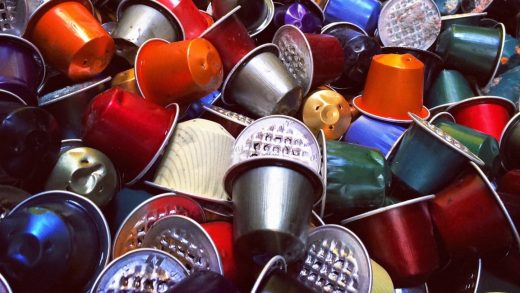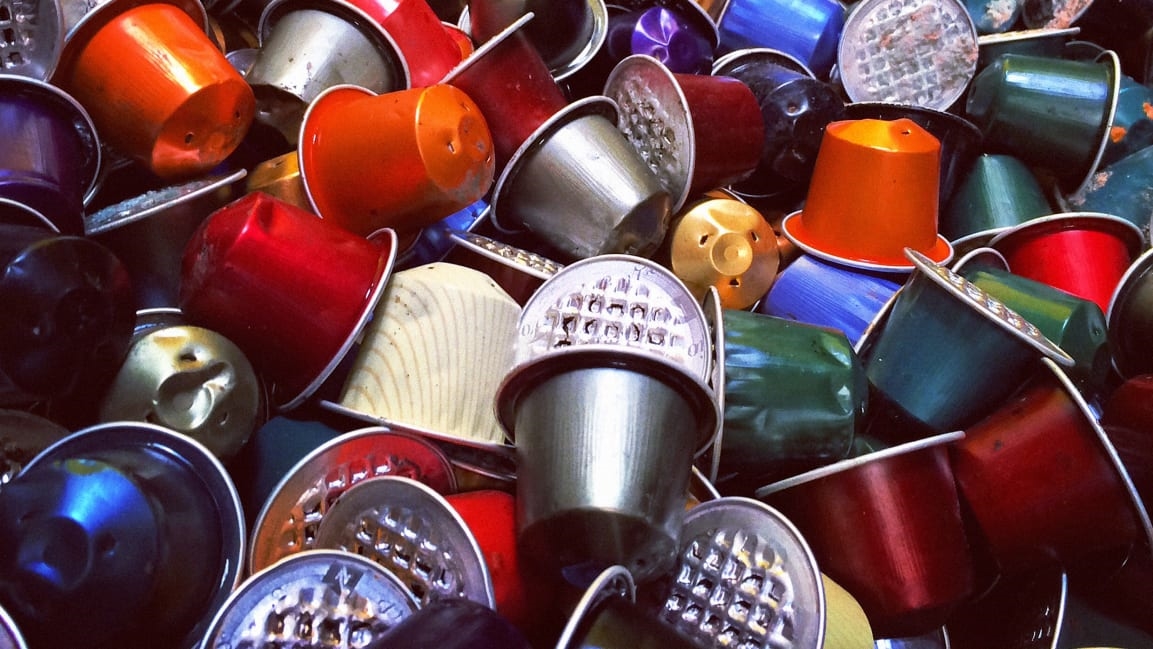Nespresso just spent $1.2 million to fix a problem it created by existing
Brewing single-use coffee capsules can be a convenient way to start your morning, but they can be pretty inconvenient for the environment, quickly adding up to a lot of waste if you don’t recycle them properly. Now, New Yorkers can be confident their Nespresso pods will be recycled, thanks to an investment in the city’s sanitation programs funded by Nespresso itself.
Though Nespresso pods are made of aluminum—one of the easiest materials to recycle and one that can actually be recycled indefinitely (unlike plastic, which can only be reused a limited number of times)—most municipalities’ recycling programs can’t sort that kind of small, lightweight aluminum objects. Though Nespresso does offer a program for coffee addicts to send their used Nespresso capsules, pre-paid shipping included, back to the company for recycling, only about one-third of U.S. customers do so, according to Guillaume Le Cunff, president and CEO of Nespresso USA. One-third is better than nothing, but that’s still a lot of aluminum coffee capsules left for landfills.
Nespresso recently invested $1.2 million to help New York City’s recycling centers better recycle their coffee capsules, and now New Yorkers can toss their Nespresso pods in their curbside recycling bins and be sure they’ll get a second life.
“New York City is one of the biggest markets for our company. Because of that, we can reach a large group of consumers through this effort,” Le Cunff says in an email. And that’s not the end of Nespresso’s efforts to address the waste issues from its own products. That $1.2 million allowed Sims Municipal Recycling, the facility that provides recycling services for New York City curbside collection, to install new equipment that can better sort and capture small pieces of aluminum. Previously, those objects tended to fall through the first sorting screen at the recycling center.
This collaboration between an individual company that makes a single-use product, and thus a lot of subsequent waste, and municipality recycling programs is crucial to getting more people to recycle, says Bridget Anderson, deputy commissioner of Recycling and Sustainability at the NYC Department of Sanitation. Sims may not have been able to make that kind of investment in their machinery on their own, just as the city may not have had the funds to help out, but Sims was “very willing” to do so when they had a funding partner, she says.
“This is something we’re very excited about—when the private industry is trying to actually do that monetary investment in recycling infrastructure to help ensure their products can get recycled. We support that because that’s what we need, better and more equipment for recycling,” she says. This investment from Nespresso shows, to Anderson, that the company is “really considering the end of life of their product, to ensure it’s not ending up in a landfill.”
Sure, Nespresso’s investment makes the company look good and helps solve a problem they in part are responsible for—what to do with all those little Nespresso capsules?—but it has an added benefit for the entire city of New York. The updated recycling infrastructure Nespresso funded doesn’t just handle their aluminum coffee pods; it can now better recycle any small, lightweight items that the machines would have previously missed. That includes everything from bottle caps and foil to can lids and keys, which can now all be sold to smelters and used to make new products like car parts and soda cans.
Nespresso first introduced their single-serve coffee machine in Europe in 1986 and developed the first recycling system dedicated to processing Nespresso capsules in Switzerland in 1991. Le Cunff, who started working with the company’s recycling programs 12 years ago, has said that sustainability is core to their business. This collaboration with New York City’s sanitation department “has the potential to reduce the 43,000 tons of mixed metals, beyond Nespresso capsules, that currently end up in local landfills each year,” he says. That may be a small fraction of the total picture of trash New York City—residents there produce 12,000 tons of waste every day—but it may be a big step, as Anderson notes, in getting private companies to do their part and be more responsible for where their products end up.
(30)



